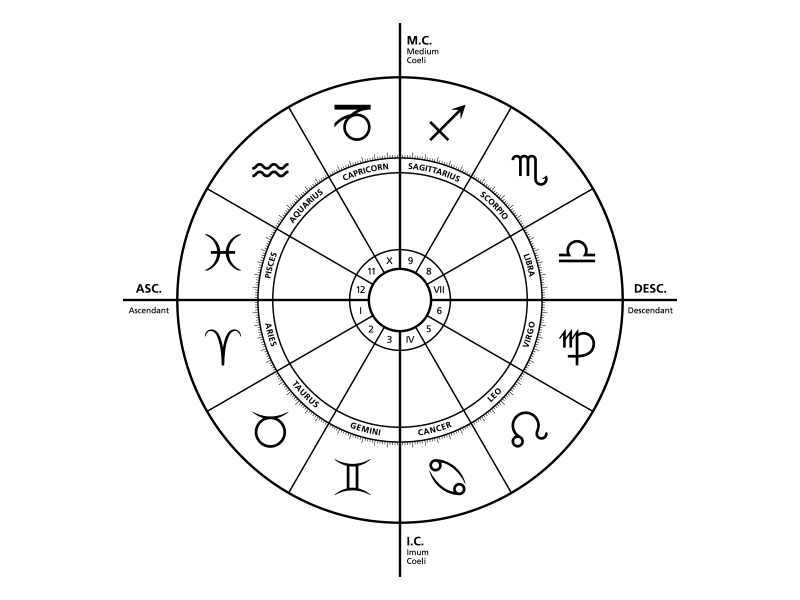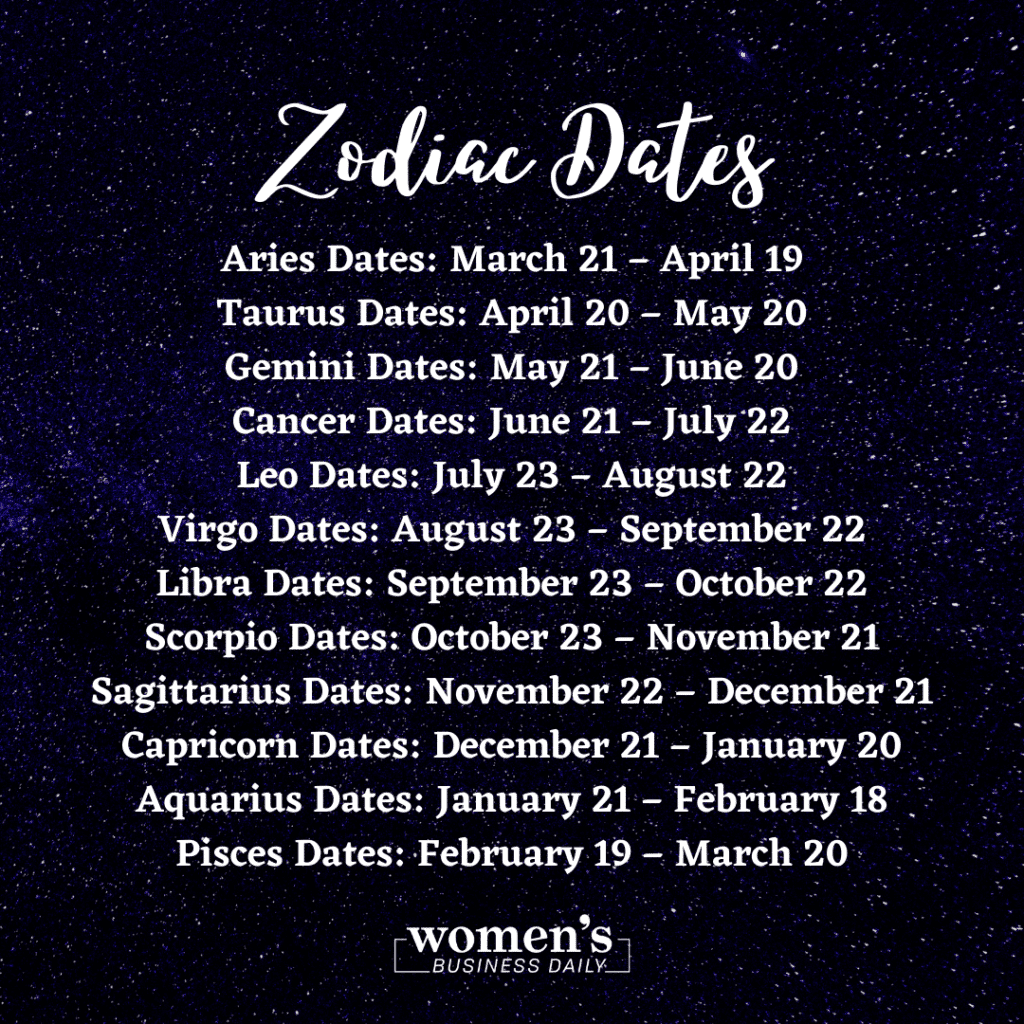Astrology, an ancient practice steeped in mysticism and celestial wisdom, has captivated cultures across the globe for centuries. The history of astrology finds its origins in ancient Mesopotamia. And those origins extend to the far-reaching corners of the modern world, influencing beliefs, shaping societies, and providing insights into the human condition.
20th-century astrology is not without cynics and naysayers, though, even though once upon a time, astrology was considered a science. For eons, humans moved, lived, and thrived in sync with the movements and placements of the stars above.
The History of Astrology: Where Did Astrology Come From?
For a time, astrology and astronomy were no different from each other. Merchants, traders, and wanderers regarded astrology as a commonly accepted practice, much like medicine. Back then, astrology was more than predicting events. It was also a study of human behavior as they relate to the movement of the planets.
Some of the earliest known traces of astrology date as far back as the 3rd millennium BCE in Eurasia, particularly the Sumerians in Mesopotamia. Later on, the Babylonians created the 12 signs of the zodiac and the zodiac wheel.
Meanwhile, through the traders, merchants, and travelers on the Silk Roads that used to link Eurasia, people from across cultures shared their knowledge about astrology. Thus, the practice spread worldwide, with each practice varying by culture, beliefs, and tradition.
Later, during the Tang Dynasty (705-907 CE), the Chinese came up with the practice of “horoscopy,” one of the most popular forms of astrology still existing today. While astrology, in general, was broad enough to include elements of psychology, horoscope, on the other hand, is predictions-based.

Astrology In Hellenistic Egypt
During the reign of Alexander the Great in 332 BCE in Egypt, scholars combined their knowledge about astrology from all angles. It has been said that the Western astrological practices we know today combine the Egyptian’s Decanic zodiac and Babylonian astrology.
This meant that the zodiac wheel was used, but it was further divided into 36 portions, the Egyptian way. Also, particular focus was on the planetary rulers, the four elements, and the planetary gods that ruled over the zodiacs.
It was also in this period that the natal chart was born. Ancient astrologers used to read the exact placements or positions of celestial bodies at the moment a person was born. This natal or birth chart would later serve as a guide for a person’s life and destiny.

Astrology in Ancient Greece and Rome
An astrology practitioner/priest from Babylon called Berossus taught astrology at around 280 BCE to the inhabitants of the Greek Island of Kos. This later led to the birth of two kinds of astrology: Theurgic Astrology and Horoscopy.
Theurgic Astrology is a practice dedicated to helping individuals reach their higher state of consciousness. Meanwhile, Horoscopy was more about predicting outcomes from a person’s decisions or predictions about events as determined by the stars.
From Greece, astrological theory later spread over Rome, with historical evidence almost always pointing out that it started with the lower class. Not long after, however, its influence began to infiltrate the upper class of Roman society. Thus, astrological belief among the higher class became evident in written works, with the earliest reference coming from the orations of Cato in 160 BC.
Emperors and aristocrats then became engrossed in the practice, starting with the emperor, Augustus. Later, the emperor Tiberius also sought the astrological advice of Thrasyllus, a renowned astrologer.
Another notable believer in astrology was Claudius Ptolemy, best known for his geocentric (model of the universe). Combining mathematics with the movements of heavenly bodies, Ptolemy attempted to explain the connection between a person’s birthplace and the stars’ locations. In his attempt, he created one of the earliest world maps and coined the term “geography” in the process.
Astrology in the Middle Ages
The fall of Rome marked the start of the Middle Ages. It was a period when humanities and the sciences became closely aligned. It was also during this period that astrology developed in Islamic culture, following the collapse of Alexandria, brought about by Sassanid Persians.
One of the most notable Persian astrologers emerged in the 9th century in the person of Albumasar. Albumasar’s practical manuals became a blueprint of Muslim intellectual history. His astrology-based predictions became so accurate that Caliph al-Musta’in issued a lashing order against him.
Astrology in the 17th Century
As the 17th century drew to a close and empirical sciences emerged, astrology died down and slowly lost its academic standing. Scholars undermined astrology and regarded it as more guesswork than an accurate science.
Despite mockery and cynicism surrounding astrology, the German mathematician and astronomer Johannes Kepler kept a high regard for the practice. Although he debunked some of the beliefs surrounding astrology, Kepler believed that astrology was of equal value to astronomy. He also believed that astrology held the deepest connections between man and the cosmos.
Despite declassifying astrology as a science, this did not stop it from gaining popularity among the masses. While most of its consumers only know a particular kind of astrology, the horoscopes seen in print and broadcast media still thrived.
Thus, in the 20th century, astrology became a staple in popular culture – but only to the extent of entertainment value. This does not mean people stopped re-discovering and delving deep into the lost art.

Astrology Today
Today, there is undoubtedly a renewed interest in the history of astrology and how it was originally practiced. Although people rarely go deep into how astrology came about, a sense of respect and sacredness is still preserved among those who practice it.
Many spiritual practitioners believe that the rise in interest in astrology is a sign that many people are awakening, spiritually. Undoubtedly, this began during the pandemic when there was a massive shift in the collective consciousness.
Wherever you may stand in the astrology conversation, one thing is for sure – astrology is a beautiful, ancient practice filled with interesting history worth acknowledging.
Providing a daily digital source for motivation and inspiration for the perfect work/life balance.
- Women's Business Dailyhttps://www.womensbusinessdaily.com/author/womens-business-daily/
- Women's Business Dailyhttps://www.womensbusinessdaily.com/author/womens-business-daily/
- Women's Business Dailyhttps://www.womensbusinessdaily.com/author/womens-business-daily/
- Women's Business Dailyhttps://www.womensbusinessdaily.com/author/womens-business-daily/






